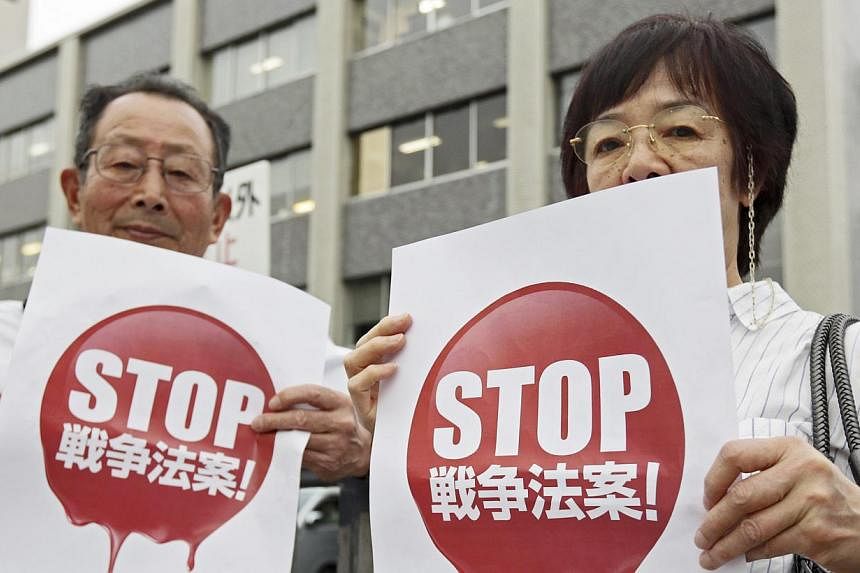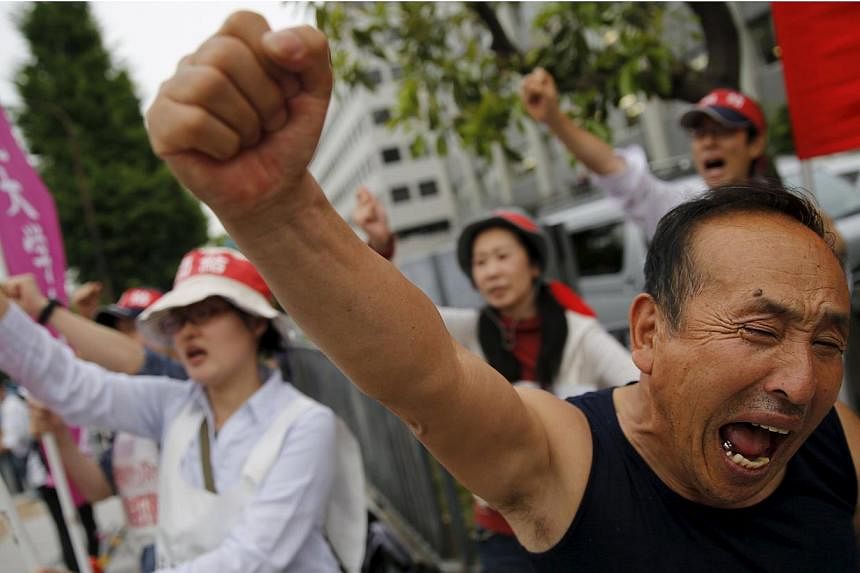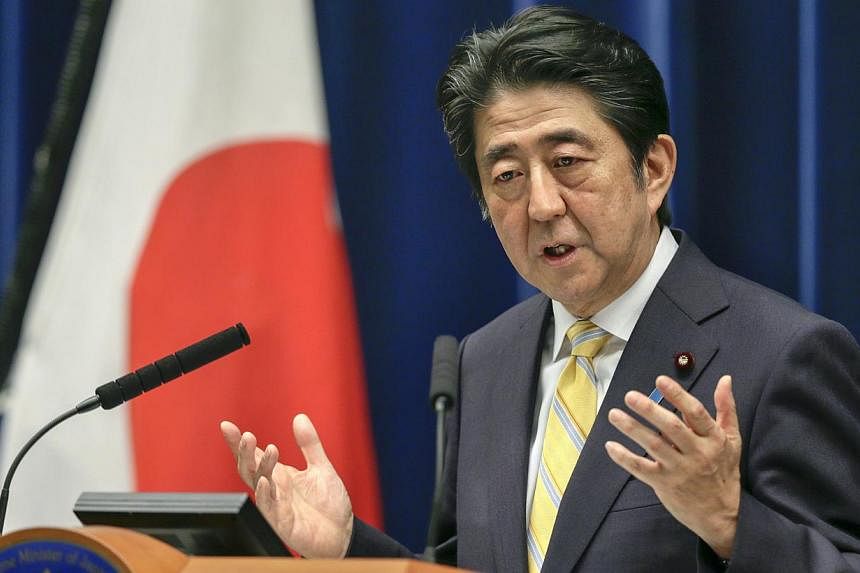TOKYO (Bloomberg) - Prime Minister Shinzo Abe vowed to limit Japan's use of military power as he sought to calm public opposition and regional nervousness over legislation allowing its forces to defend other countries.
Abe's cabinet approved the bills in Tokyo on Thursday as hundreds of demonstrators took to the streets outside the prime minister's office shouting, "protect the constitution" and "Abe resign."
"We will continue to keep our pledge of not waging war, while protecting the lives and peaceful living of the Japanese people,"
Abe told reporters in Tokyo on Thursday. "Based on this determination, we made a cabinet decision today to approve security bills that will ensure the peace and stability of Japan and the world. In this age, no one country can defend itself alone."
Abe has vowed to pass the legislation this summer to back up his reinterpretation of the pacifist constitution and last month's revision of joint Japan-US defence guidelines to expand the alliance globally.
Since taking office more than two years ago, he's loosened a ban on arms exports and reversed a slide in defence spending amid a territorial spat with an increasingly assertive China.
Abe said that ties with US were "stronger than ever" and any attack on Japan's only formal ally in waters near Japan would trigger a crisis.
The legislation has riled China and South Korea, the biggest Asian victims of Japan's wartime aggression and faces vocal opposition at home, where pacifism runs deep and polls indicate that more than 40 percent of Japanese oppose the plan.
Risk averse
"The bills are part of a gradual expanding of the envelope that has been going on since the 1990s," said Robert Dujarric, director of the Institute of Contemporary Asian Studies at Temple University Japan Campus.
"There are limits to what the democratic government can do as the electorate remains wedded to pacifism, and even hawkish members of Abe's party are unlikely to take major risks on foreign policy."
Dujarric added that despite Japan facing threats from China and North Korea, much of the Self-Defense Forces are devoted to deterrence and there isn't much "surplus" left for overseas operations.
The government plans to submit the bills to parliament Friday, an official, who asked not to be identified due to government policy, told reporters in Tokyo. Abe's ruling coalition's majority in both houses means they will probably pass.
'Harsh reality'
The legislation would allow Japanese forces to use weapons to rescue its citizens when abroad, to support other nations' forces in situations that have a serious effect on Japan's peace and security and also in situations threatening international peace and security that are being addressed collectively by the international community.
"The number of scrambles by our Air Self-Defense Force against planes of unknown nationality that approach our air space is seven times what it was 10 years ago," Abe said. "We cannot avert our eyes from this harsh reality."
Abe also said that Japanese citizens have been the victims of terrorism in Algeria, Syria and Tunisia over the past two years, and warned that most of Japan is within range of North Korea's ballistic missiles.
Concerns over Abe's defence policy has contributed to a souring of relations with China and South Korea. Both Chinese President Xi Jinping and his South Korean counterpart Park Geun Hye expressed concern after Abe reinterpreted the constitution last year.
'Trampling constitution'
South Korea's Foreign Ministry spokesman Noh Kwang Il said Thursday at a briefing in Seoul that South Korea expects discussions on Japan's defence policy to be conducted "transparently." An association of South Korean civic groups issued a sterner statement. They said the bills "mercilessly trample on the pacifist constitution, tear down the authority of the United Nations as a collective security mechanism and run counter to the US-Japan defence treaty."
Tsuneo Watanabe, director of foreign and security policy research at the Tokyo Foundation think tank, said Abe has secured a base for his 'proactive contribution' to world peace.
"His next move would be to reconcile with China and South Korea by focusing on his economic agenda," he said.
Abe still has much to do to convince people that legislation is needed. A Yomiuri newspaper poll published Monday showed 46 percent of respondents in favour of the legislation with 41 percent against - the first time support has exceeded opposition.
Some 48 percent said the bills shouldn't be passed in the current parliament session that is due to end next month.



